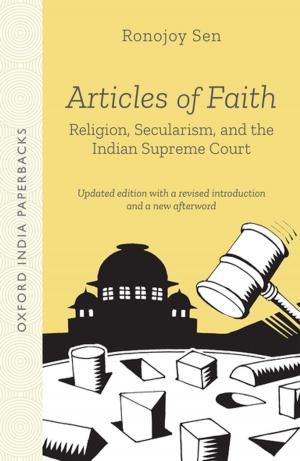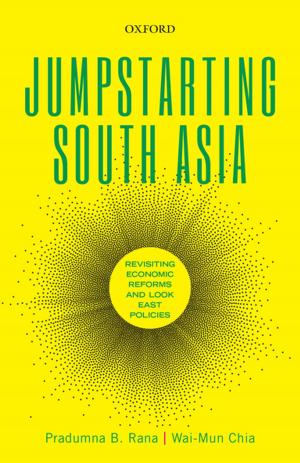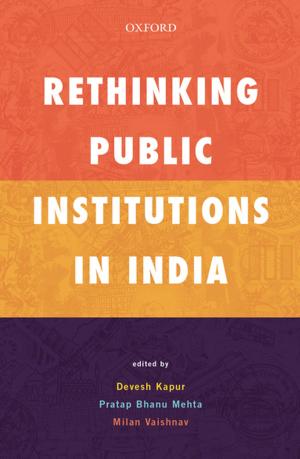Shaping Policy in India
Alliance, Advocacy, Activism
Nonfiction, Social & Cultural Studies, Political Science, Government, Public Policy, Politics, History & Theory, International| Author: | Rajesh Chakrabarti | ISBN: | 9780199091478 |
| Publisher: | OUP India | Publication: | August 9, 2017 |
| Imprint: | OUP India | Language: | English |
| Author: | Rajesh Chakrabarti |
| ISBN: | 9780199091478 |
| Publisher: | OUP India |
| Publication: | August 9, 2017 |
| Imprint: | OUP India |
| Language: | English |
How effective is the Indian polity in making laws and policies to address changing ground realities? How do its gears work? Which stakeholder groups are more successful in bringing about policy change, through what methods, and in what contexts? Seeking to answer these questions, Shaping Policy in India takes a close look at nine landmark Indian laws and legislative attempts to reveal the sociopolitical process of policy formulation in the world’s largest democracy. Offering in-depth accounts of the evolution of these nine major legislations, this book interrogates the suitability of existing political theories to explain the policy development process in an emerging economy like India. It covers recent events in the 1999–2014 period that have underlined the role of non-government players in law-making in India, as well as long-standing movements like right to information, right to education, and food security. Case studies have been used to assess the complexity against the relief of existing political theories, invariably developed in the West and to identify gaps in current political theory in understanding the nature of issue-based political movements, advocacy, and activism. The book then takes a few initial steps towards suggesting a paradigm based on complexity theory that may better serve to illuminate this critical part of the political process.
How effective is the Indian polity in making laws and policies to address changing ground realities? How do its gears work? Which stakeholder groups are more successful in bringing about policy change, through what methods, and in what contexts? Seeking to answer these questions, Shaping Policy in India takes a close look at nine landmark Indian laws and legislative attempts to reveal the sociopolitical process of policy formulation in the world’s largest democracy. Offering in-depth accounts of the evolution of these nine major legislations, this book interrogates the suitability of existing political theories to explain the policy development process in an emerging economy like India. It covers recent events in the 1999–2014 period that have underlined the role of non-government players in law-making in India, as well as long-standing movements like right to information, right to education, and food security. Case studies have been used to assess the complexity against the relief of existing political theories, invariably developed in the West and to identify gaps in current political theory in understanding the nature of issue-based political movements, advocacy, and activism. The book then takes a few initial steps towards suggesting a paradigm based on complexity theory that may better serve to illuminate this critical part of the political process.















